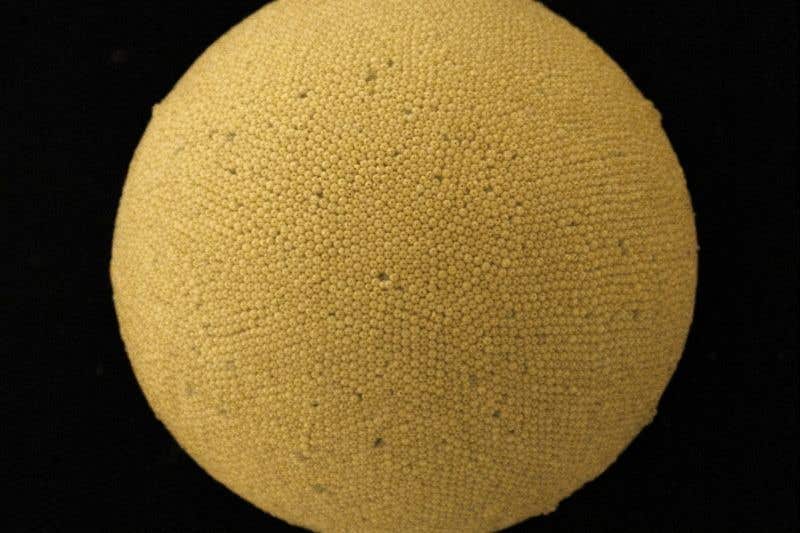Vitamin C restores skin’s strength from the inside out, study finds
New research finds that vitamin C thickens aging skin by turning on growth genes, offering hope for future skin regeneration treatments.

Vitamin C helps thicken aging skin by reactivating genes through DNA demethylation, boosting epidermal renewal and strength. (CREDIT: Shutterstock)
As skin ages, it slowly loses its ability to renew and protect. The outermost layer, called the epidermis, becomes thinner. This change weakens the skin’s natural barrier and raises the risk of injury and infection. About 90% of the cells in this layer are keratinocytes.
These cells begin life in deeper layers and move upward as they mature, eventually forming the protective outer surface. For the skin to stay healthy, these cells must constantly grow, divide, and change into their final form—a process scientists call differentiation.
Recent research has uncovered a powerful way to support this process. A group of scientists in Japan found that vitamin C doesn’t just help fight wrinkles or brighten the skin. It may also restore the skin’s strength by activating key genes that control how keratinocytes grow and develop. Their findings, published in April 2025, give deeper insight into how vitamin C affects the skin at a genetic level.
A New Look at an Old Vitamin
Vitamin C, known for its antioxidant power, plays many roles in skin health. Until now, most studies focused on how it helps fight damage from sunlight or pollution. But this new study, led by a team from the Tokyo Metropolitan Institute for Geriatrics and Gerontology, shows that vitamin C does much more.
"Vitamin C seems to influence the structure and function of the epidermis, especially by controlling the growth of epidermal cells," said Dr. Akihito Ishigami, the lead author. “In this study, we investigated whether it promotes cell proliferation and differentiation via epigenetic changes.”
To explore this, the researchers used lab-grown skin called a human epidermal equivalent. This model works like real skin. It sits exposed to air on top while getting nutrients from below, much like human skin receives blood supply from deeper tissues. This setup helps researchers closely track how skin cells behave.
Related Stories
- Scientists discover new weapon in the fight against skin cancer
- Fish guts could be the future of skin care products
Vitamin C was added in concentrations of 0.1 and 1.0 millimolar, levels that match what is normally transported to skin cells through the bloodstream. After seven days, the vitamin C-treated skin showed a thicker inner cell layer. After 14 days, this layer became even thicker, while the outer layer of dead cells became thinner. These changes pointed to increased activity and growth in the living layers of the epidermis.
When the team looked deeper, they found more cells testing positive for Ki-67, a protein that marks active cell division. This confirmed that vitamin C helps skin cells multiply faster.
Vitamin C and the Power of Epigenetics
The most exciting discovery from the study was how vitamin C triggers this growth. It does so through a process called DNA demethylation. DNA carries the instructions that tell cells what to do. Sometimes, chemical groups called methyl groups attach to parts of the DNA, blocking certain genes from being read.
This process is called methylation, and it can turn genes off. Vitamin C helps remove these methyl groups in a process known as active DNA demethylation. By doing so, it turns genes back on—specifically, genes that help keratinocytes grow and divide.
This demethylation process relies on a group of enzymes called TET enzymes. These enzymes convert a DNA building block known as 5-methylcytosine into another form called 5-hydroxymethylcytosine (5-hmC). This step is essential to removing methyl groups and reactivating genes. But TET enzymes need help.
During the process, they use iron in its Fe2+ state, which gets oxidized to Fe3+. Vitamin C helps recycle Fe3+ back into Fe2+, keeping the enzyme active. Without this support, TET enzymes slow down, and DNA stays methylated.
In this study, the researchers found that vitamin C boosted global levels of 5-hmC in skin cells. They also discovered that this effect vanished when they added a chemical that blocked TET enzymes. This confirmed that vitamin C works through the TET pathway to activate genes.
Thousands of Genes Reactivated
The team didn’t stop at general patterns. They dug deeper into the DNA of vitamin C-treated skin using two advanced methods: DNA microarrays and whole-genome bisulfite sequencing. These tools allow scientists to measure changes in thousands of genes at once and pinpoint where DNA methylation changes occur.
They found over 10,000 regions of DNA that became less methylated after treatment. More importantly, 12 key genes linked to cell growth showed a 1.6 to 75.2 times increase in activity. These genes help control how quickly and how often keratinocytes multiply.
This wide-reaching genetic reactivation explains the observed thickening of the epidermis. It also shows that vitamin C can shift the entire behavior of skin cells by turning on specific sets of genes that had been silenced.
A Promising Path for Thinning Skin
These results suggest that vitamin C does more than protect the skin from outside threats. It actually helps rebuild the skin’s structure from within by guiding the growth of its most vital cells. This could lead to new treatments for people with thin or damaged skin, especially older adults.
In past studies, researchers noticed that mice lacking vitamin C had thinner skin and fewer dividing skin cells. This new research shows why. Without vitamin C, the TET enzymes don’t work well, methylation builds up, and skin renewal slows down. When vitamin C is added, this process reverses, allowing skin to regain its strength.
“We found that vitamin C helps thicken the skin by encouraging keratinocyte proliferation through DNA demethylation,” Dr. Ishigami said. “That makes it a promising treatment for thinning skin, especially in older adults.”
Future Directions and Applications
While this study focused on lab-grown human skin, the implications stretch far beyond the lab. Since the concentrations used match those found in real skin, scientists believe that similar effects could occur in living humans.
This raises hopes for creams, serums, or even dietary supplements designed to deliver vitamin C directly to the skin’s deeper layers. By targeting the genes that control renewal, such products could support healthy skin aging in a way that goes beyond surface-level care.
Because the mechanism involves genetic reactivation rather than temporary hydration or protection, the benefits could last longer. It also opens the door to using vitamin C for other conditions that involve skin thinning, such as certain skin diseases, burns, or long-term sun damage.
More research will be needed to test these treatments in real-world settings. But the foundation laid by this study provides strong support for vitamin C as a key player in skin renewal and repair.
Research findings are available online in the Journal of Investigative Dermatology.
Note: The article above provided above by The Brighter Side of News.
Like these kind of feel good stories? Get The Brighter Side of News' newsletter.



